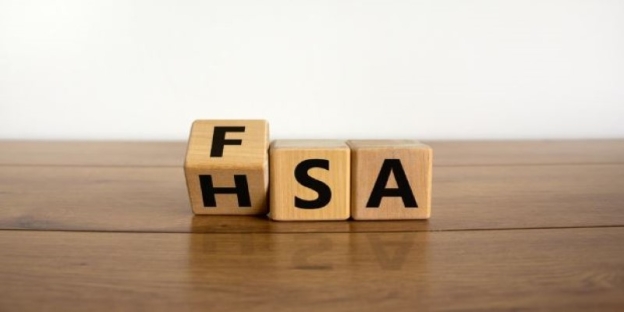Does the thought of visiting the dentist make your wallet ache more than your teeth? Millions of people skip routine check-ups or delay treatments because they don't have insurance. However, avoiding dental care often leads to more significant (and expensive) problems later. The good news is that there are practical ways to maintain a healthy smile without incurring substantial expenses. Let's explore the most effective strategies for saving money while still receiving high-quality care.
Make Use Of Community Dental Clinics
Many towns and cities have community dental clinics that provide affordable services. These clinics often operate on a sliding fee scale, meaning the amount you pay depends on your income. Some may even offer free cleanings or reduced-cost extractions.
For example, community health centres supported by the Health Resources & Services Administration (HRSA) operate nationwide and are open to everyone, regardless of their insurance status. They're invaluable for preventive care, such as cleanings, fillings, and X-rays.
If you're worried about waiting lists, call in advance. Ask if they have emergency slots available for urgent cases, such as toothaches or infections.
Visit A Dental School
Have you ever considered allowing dental students to work on your teeth? It might sound risky, but dental schools offer safe and supervised treatment at a fraction of the regular cost.
Here's how it works: students in training need real patients to practice on, and licensed dentists closely monitor their work. You may need to spend a little extra time in the chair, but the savings are enormous. For instance, a root canal that could cost $1,000 at a private clinic might only be $200–$300 at a dental school.
You can search online for dental schools in your area. Many of them post treatment prices on their websites.
Shop Around And Ask For Cash Discounts
Dental prices vary more than you might expect. Two clinics on the same street could charge wildly different amounts for the same procedure. That's why it pays to shop around.

When requesting estimates, ask for the "self-pay" or "cash" price. Many dental offices offer discounts to patients who pay upfront, as they eliminate the need for dealing with insurance paperwork. You could save anywhere from 10% to 30% this way.
Tip: Don’t be shy about negotiating. If you explain your situation, some dentists are willing to match prices or create a flexible payment plan.
Use Dental Savings Plans
A dental savings plan is not the same as insurance. Instead, it’s a membership program that gives you access to discounted rates with participating dentists.
Here's how it works: you pay an annual fee (usually around $100–$200), and then you receive discounts of 10%–60% on treatments such as cleanings, crowns, or braces. Unlike insurance, there are no waiting periods or annual maximums.
These plans can be beneficial if you know you'll need expensive work in the near future. Just make sure to check which dentists in your area are part of the network.
Prioritise Preventive Care At Home
One of the most effective ways to save money is to prevent problems before they occur. Good home care habits make a massive difference:
- Brush twice a day with fluoride toothpaste.
- Floss daily to remove plaque between teeth.
- Use mouthwash to reduce bacteria.
- Replace your toothbrush every three months.
Skipping dental visits doesn't mean skipping care. By staying consistent with your at-home dental care, you reduce the risk of cavities or gum disease, which can lead to costly treatments.
Look Into Local Charities And Events
Some non-profit groups and local charities host free dental care events. These may include cleanings, fillings, or extractions.
For example, "Mission of Mercy" and "Dentistry From the Heart" bring volunteer dentists together to treat people without insurance. These events typically occur once or twice a year, so be sure to check local announcements or community boards for updates.
If you can’t get into one of these events, some charities partner with clinics to offer ongoing assistance programs for low-income patients.
Consider Dental Tourism
For major dental procedures, some people travel abroad to save money. Countries like Mexico, Costa Rica, and Hungary have become popular destinations for affordable yet high-quality dental care.
To give you an idea, a dental implant that costs $4,000 in the U.S. might cost $1,000–$1,500 in Mexico. Many clinics abroad cater to international patients, offering package deals that include transportation and lodging.
That said, do thorough research before booking. Look for accredited clinics with reviews from past patients, and factor in travel expenses when comparing costs.
Use Flexible Spending Accounts (FSA) Or Health Savings Accounts (HSA)
If you have access to an FSA or HSA through your job, you can use these accounts to pay for dental care with pre-tax dollars. That means you’re saving around 20–30% depending on your tax bracket.

These funds can be used for a wide range of expenses, including cleanings, braces, and dentures. Please keep track of receipts, as you may need them for verification purposes.
Explore Online Coupons And Deals
Websites like Groupon often have discounted dental services. These deals typically apply to preventive care services, including exams, X-rays, and teeth whitening.
For example, you might find a $200 package of exam, cleaning, and X-rays offered for $50–$75. Always check the expiration date and fine print before making a purchase.
Break Big Treatments Into Phases
If you need multiple procedures, ask your dentist if the work can be done in stages. For instance, instead of replacing all crowns at once, you could do one or two this year and the rest later.
This not only spreads out the cost but also gives you time to save money in between visits. Dentists are often open to creating phased treatment plans if you explain your budget limitations.
When To Seek Immediate Care
Saving money is essential, but don't put off urgent dental problems. An untreated cavity can turn into an infection, which may require costly emergency care—or even hospitalisation.
If you have severe tooth pain, swelling, or signs of infection, don't wait. Seek treatment right away. You can still utilise the money-saving strategies above, but your health should be your top priority.
Affordable Smiles Are Possible
Dental care without insurance may feel overwhelming, but you have more options than you think. From community clinics and dental schools to savings plans and preventive habits, there are many paths to keep costs down.
With the right approach, you don’t have to choose between your health and your finances. A healthy smile is possible—even without insurance.




